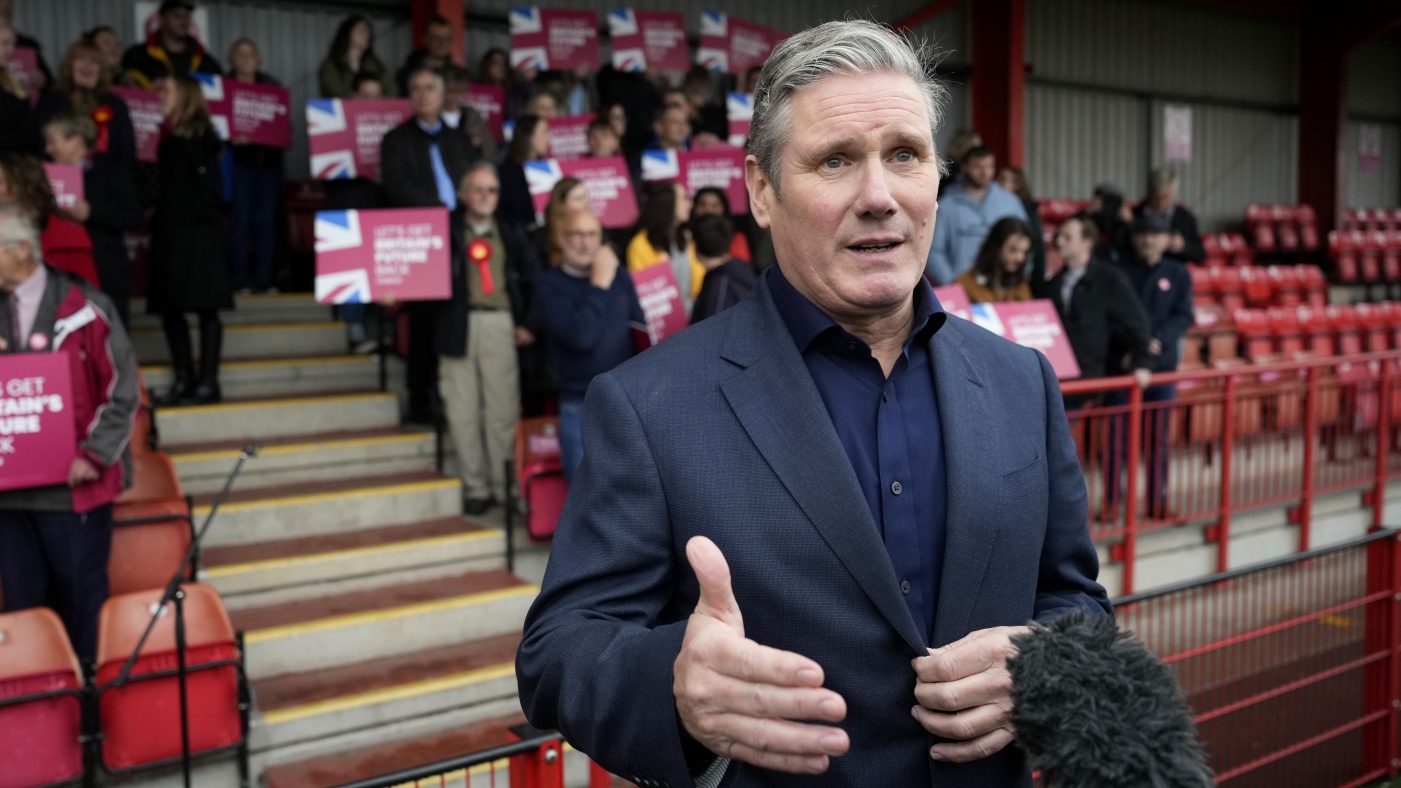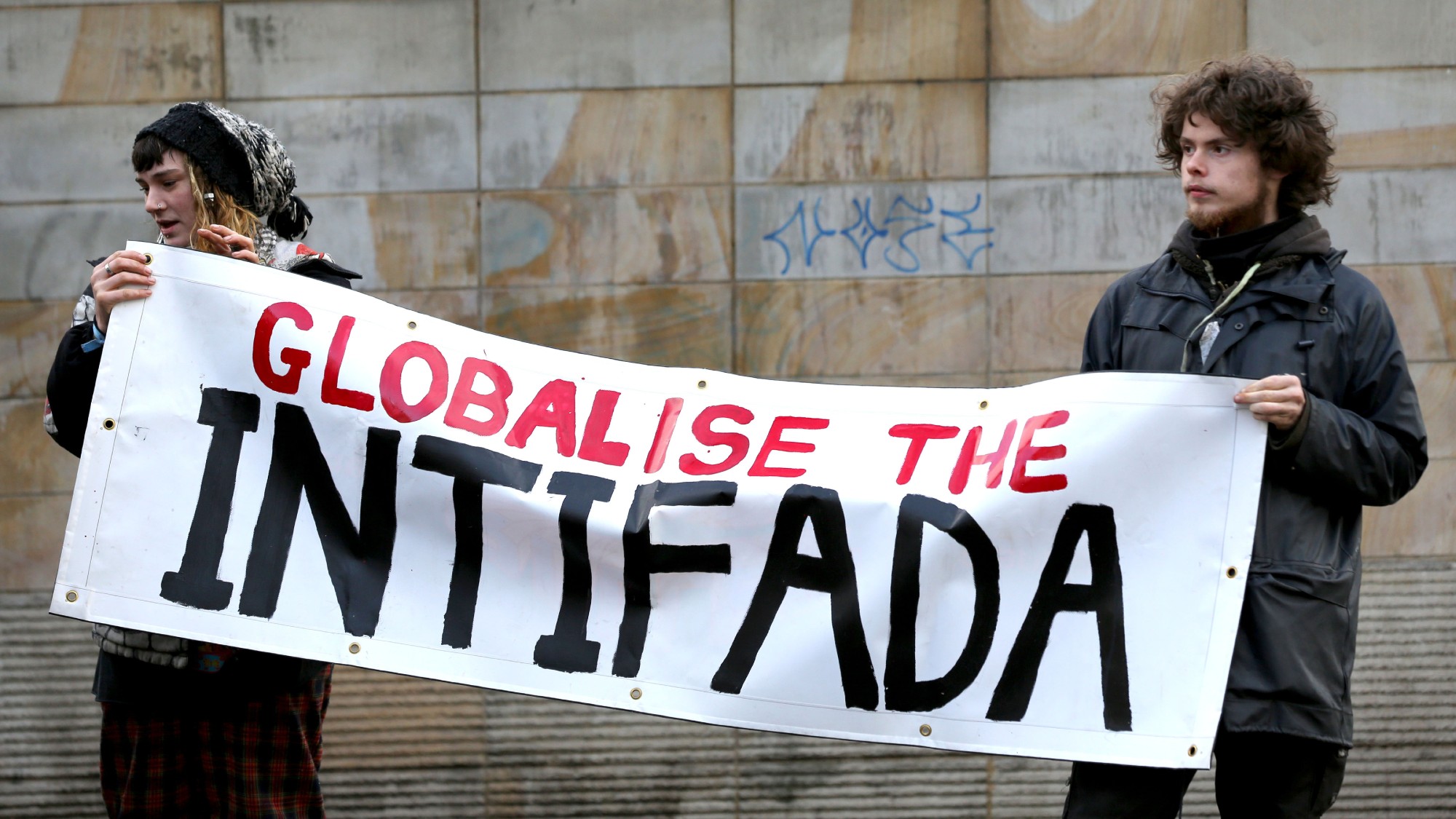Labour's Gaza policy: can Starmer keep party together?
There is growing backbench dissent over the party's position on the Israel-Hamas war

A free daily email with the biggest news stories of the day – and the best features from TheWeek.com
You are now subscribed
Your newsletter sign-up was successful
Labour leader Keir Starmer has met with Muslim MPs and peers amid growing discontent over the party's stance on the Israel-Hamas war.
Starmer has faced criticism since appearing to say in an LBC interview that Israel had the "right" to cut off water and energy to Gaza, although he later said he meant only that the country had a right to self-defence.
The Labour leader has faced further criticism after he visited a Welsh mosque and posted on X he had "repeated our calls for all hostages to be released, more humanitarian aid to enter Gaza, for the water and power to be switched back on, and a renewed focus on the two-state solution".
The Week
Escape your echo chamber. Get the facts behind the news, plus analysis from multiple perspectives.

Sign up for The Week's Free Newsletters
From our morning news briefing to a weekly Good News Newsletter, get the best of The Week delivered directly to your inbox.
From our morning news briefing to a weekly Good News Newsletter, get the best of The Week delivered directly to your inbox.
The South Wales Islamic Centre expressed "dismay" at the statement and said Starmer had "gravely misrepresented our congregants and the nature of the visit".
'Labour can ill afford to ignore its Muslim voters'
Starmer and deputy leader Angela Rayner met with Muslim MPs as "considerable dissent" continues to foment on the Labour backbenches over Starmer's language on the Israel-Hamas war, said Politico's London Playbook. More than 150 Muslim Labour councillors have written to him urging the party leadership to call for an immediate ceasefire in the region, while a further 19 have quit the party over the issue.
One shadow minister told Playbook that it's an issue that has "united MPs on the left, right and centre of the party", adding that party leadership had failed to recognise that the party was "haemorrhaging Muslim votes massively, enough to lose seats if there was an election tomorrow."
Labour can "ill afford to ignore its Muslim voters," said David Hearst in the Middle East Eye. Some 24 Westminster seats and 11 councils "depend on the Muslim vote" including Birmingham, Bradford, Leeds, Manchester, Leicester, Luton and Oldham. "This is not a factional left-right issue in the party" but "an electoral problem for Labour".
A free daily email with the biggest news stories of the day – and the best features from TheWeek.com
The issue is even "eliciting quiet disagreement from people you'd usually expect to back Starmer to the hilt", one senior Labour figure told the New Statesman, noting that moderate MPs such as Jess Phillips had challenged Rishi Sunak to condemn Israel should it breach international law.
'Dire implications for Britain's security'
It is "painfully ironic" that the "issue upon which Jeremy Corbyn was most controversial – Israel – turns out to be the one thing over which the Labour Party is willing to challenge Starmer's centrist project", wrote Tim Stanley in The Telegraph.
But Starmer is "thought to be mindful of the views of Jewish voters and MPs" who support Labour's position, despite wanting stronger criticism of the Metropolitan Police's slow response to anti-Semitic incidents in London this week. Allies therefore "doubt that Starmer will shift position and call for a temporary ceasefire while Hamas still holds hostages, some of whom are British citizens", said the New Statesman.
Nevertheless, "the splits in Labour are not going away", and it is "easy to envision a cacophony of anti-Israel voices growing to a screeching crescendo" under a future Starmer government, said former Labour MP Tom Harris in the Daily Mail.
"If large numbers of Labour backbenchers are implacably opposed to the actions of Israel, if every effort made by the Israeli Defence Forces to protect its citizens is condemned by government MPs as 'war crimes', how could a Labour foreign secretary do his or her job?" asked Harris. "These splits go beyond mere policy. They could have dire implications for Britain's security and our place in the world."
Sorcha Bradley is a writer at The Week and a regular on “The Week Unwrapped” podcast. She worked at The Week magazine for a year and a half before taking up her current role with the digital team, where she mostly covers UK current affairs and politics. Before joining The Week, Sorcha worked at slow-news start-up Tortoise Media. She has also written for Sky News, The Sunday Times, the London Evening Standard and Grazia magazine, among other publications. She has a master’s in newspaper journalism from City, University of London, where she specialised in political journalism.
-
 Quiz of The Week: 14 – 20 February
Quiz of The Week: 14 – 20 FebruaryQuiz Have you been paying attention to The Week’s news?
-
 The Week Unwrapped: Do the Freemasons have too much sway in the police force?
The Week Unwrapped: Do the Freemasons have too much sway in the police force?Podcast Plus, what does the growing popularity of prediction markets mean for the future? And why are UK film and TV workers struggling?
-
 Properties of the week: pretty thatched cottages
Properties of the week: pretty thatched cottagesThe Week Recommends Featuring homes in West Sussex, Dorset and Suffolk
-
 Is the Gaza peace plan destined to fail?
Is the Gaza peace plan destined to fail?Today’s Big Question Since the ceasefire agreement in October, the situation in Gaza is still ‘precarious’, with the path to peace facing ‘many obstacles’
-
 Will Peter Mandelson and Andrew testify to US Congress?
Will Peter Mandelson and Andrew testify to US Congress?Today's Big Question Could political pressure overcome legal obstacles and force either man to give evidence over their relationship with Jeffrey Epstein?
-
 How long can Keir Starmer last as Labour leader?
How long can Keir Starmer last as Labour leader?Today's Big Question Pathway to a coup ‘still unclear’ even as potential challengers begin manoeuvring into position
-
 What is at stake for Starmer in China?
What is at stake for Starmer in China?Today’s Big Question The British PM will have to ‘play it tough’ to achieve ‘substantive’ outcomes, while China looks to draw Britain away from US influence
-
 Can Starmer continue to walk the Trump tightrope?
Can Starmer continue to walk the Trump tightrope?Today's Big Question PM condemns US tariff threat but is less confrontational than some European allies
-
 Alaa Abd el-Fattah: should Egyptian dissident be stripped of UK citizenship?
Alaa Abd el-Fattah: should Egyptian dissident be stripped of UK citizenship?Today's Big Question Resurfaced social media posts appear to show the democracy activist calling for the killing of Zionists and police
-
 Is Keir Starmer being hoodwinked by China?
Is Keir Starmer being hoodwinked by China?Today's Big Question PM’s attempt to separate politics and security from trade and business is ‘naïve’
-
 What is the global intifada?
What is the global intifada?The Explainer Police have arrested two people over controversial ‘globalise the intifada’ chants